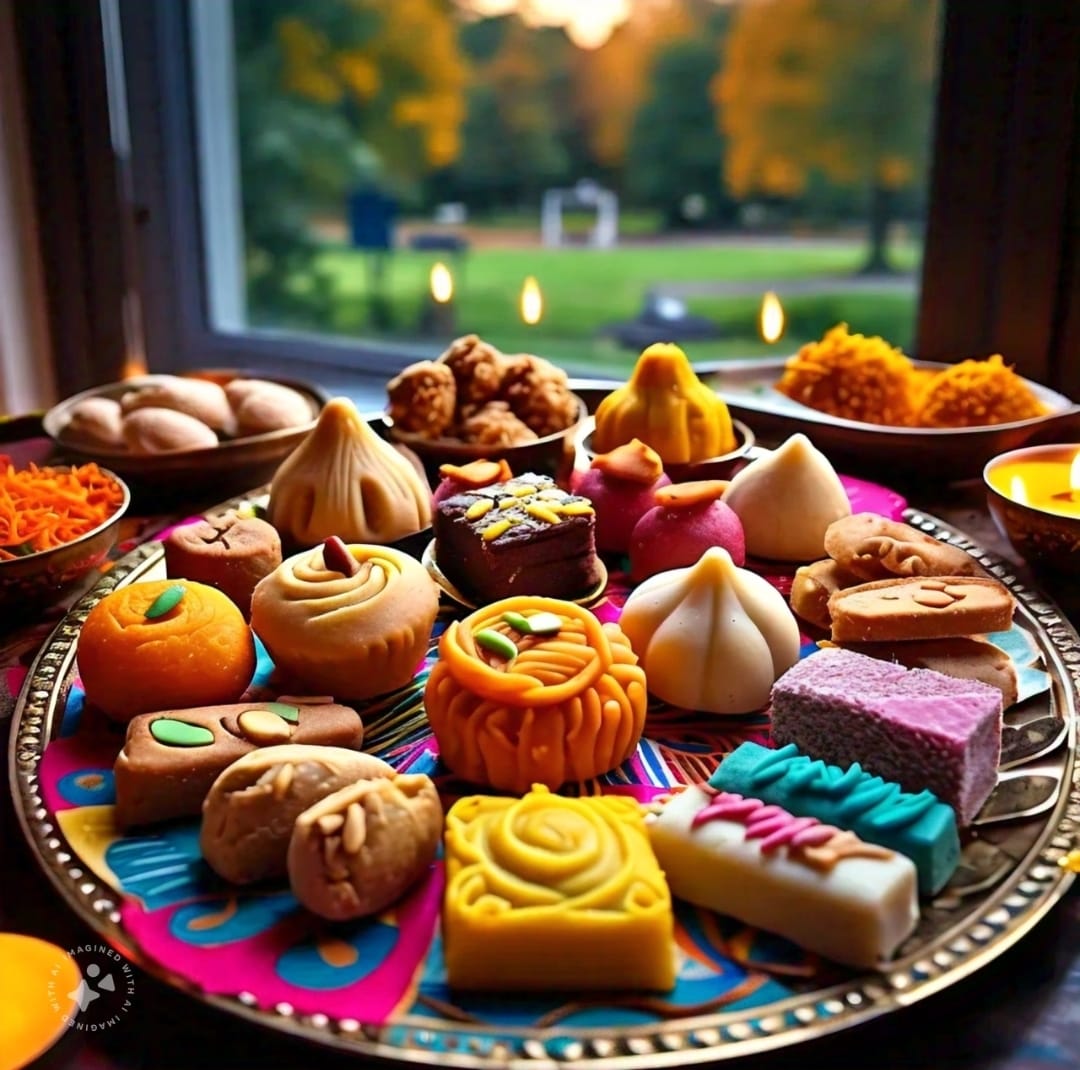Indian festivals are synonymous with vibrant celebrations, family gatherings, and of course, rich and tempting food. While the festive spread may seem irresistible, certain foods can disrupt our health if overindulged. As part of British Learning’s PG Diploma in Nutrition, we provide guidance on making healthier choices, especially during celebrations. Our PG Diploma in Nutrition Online offers expert insights from doctors on understanding food’s impact on the body, helping individuals make more informed choices. Here’s a look at some foods to be cautious about during festival seasons.
1. Fried Foods and Savories
Festivals are often celebrated with deep-fried delights like samosas, pakoras, and puris. While these foods are tempting, they are often high in saturated fats and can strain the digestive system when consumed in large amounts. Excessive fried food can lead to bloating, heartburn, and even high cholesterol levels over time.
Tip from British Learning’s Nutrition Course by Doctors: Opt for air-fried or baked versions, and remember that moderation is key.
2. Sugar-Laden Sweets
Mithai, laddoos, and jalebis are staples during Indian festivals, but they are packed with refined sugars. High sugar intake spikes blood glucose levels and contributes to weight gain, diabetes, and weakened immunity. Refined sugar can also lead to energy crashes, leaving you feeling fatigued.
Suggestion from the Nutrition Diploma with Live Lectures: Try sweets made with natural sweeteners like jaggery, dates, or honey, or limit yourself to smaller portions.
3. High-Sodium Snacks
Chips, namkeen, and packaged snacks are convenient, but they’re loaded with salt and preservatives. High sodium intake leads to water retention, bloating, and increased blood pressure.
Advanced Nutrition Certification Insight: Choose roasted or unsalted nuts and seeds for a healthier snack. This way, you enjoy the festive spirit without compromising your health.
4. Heavy Cream and Ghee-Based Curries
Indian curries and gravies are often made rich with cream, butter, or ghee during festivals, contributing to a high intake of fats. While these add flavor, they can increase your calorie count quickly, leading to weight gain and digestive discomfort.
Postgraduate Diploma in Nutrition and Health Tip: Opt for yogurt-based or tomato-based gravies for a lighter meal, and reduce the amount of cream or ghee used.
5. Packaged Juices and Soft Drinks
Sugary sodas and packaged juices often appear on the dining table, but they’re packed with empty calories and added sugars. Consuming these drinks in excess can lead to spikes in blood sugar and provide little to no nutritional value.
Insight from British Learning’s Certified Nutrition Program Online: Hydrate with fresh coconut water, herbal teas, or homemade lemon water to stay refreshed without added sugar.
6. Artificially Colored Foods
Sweets, drinks, and desserts may look appealing with bright colors, but artificial colors are often linked to allergies and digestive issues. Consuming such foods in high quantities during festivals can be harmful, especially for children.
Flexible Nutrition Diploma Worldwide Advice: Choose dishes with natural colors, such as beetroot for red or saffron for yellow, to maintain health without compromising on festive charm.
7. Refined Flour (Maida) Based Foods
Maida is commonly used in sweets, breads, and snacks, but it lacks fiber and nutrients. High consumption of maida can lead to digestive problems, and it’s also a high-glycemic ingredient, which can spike blood sugar levels quickly.
Internationally Accredited Nutrition Diploma Guidance: Substitute maida with whole wheat or millet flours, which are nutrient-rich and healthier for the digestive system.
8. Dairy-Heavy Dishes
Dairy-based sweets like rasgulla, rabri, and shrikhand are common during festivals. For those who are lactose intolerant or have a sensitive digestive system, dairy-heavy foods can lead to bloating and discomfort.
Online Diploma in Human Nutrition Suggestion: Try lactose-free alternatives or enjoy these desserts in small portions to avoid digestive troubles.
9. Alcoholic Beverages
Social drinking may increase during the festive season, but alcohol dehydrates the body, disrupts sleep, and can lead to overeating. Alcohol also affects the body’s ability to absorb essential nutrients, compromising immunity.
British Learning Nutrition Course Tip: Opt for fresh fruit juices or mocktails made from natural ingredients as healthier alternatives.
10. Processed Meats
During festivals, people often indulge in sausages, kebabs, or cold cuts. Processed meats contain high amounts of preservatives, sodium, and unhealthy fats that can harm cardiovascular health and increase the risk of cancer if consumed in excess.
Advice from British Learning’s Nutrition Course by Doctors: Choose fresh, lean meats and grill or bake them to keep your meal light and healthy.
Conclusion
While it’s essential to enjoy the festive foods and traditions, mindful eating can make a difference in how you feel during and after the celebrations. Our PG Diploma in Nutrition Online, an internationally accredited course with live lectures by doctors, covers nutrition topics to help you make balanced food choices. With British Learning, you not only gain knowledge from experts but also earn a Flexible Nutrition Diploma Worldwide, equipping you with skills for healthier living.
Celebrate responsibly, eat mindfully, and let your health and happiness shine this festive season!








